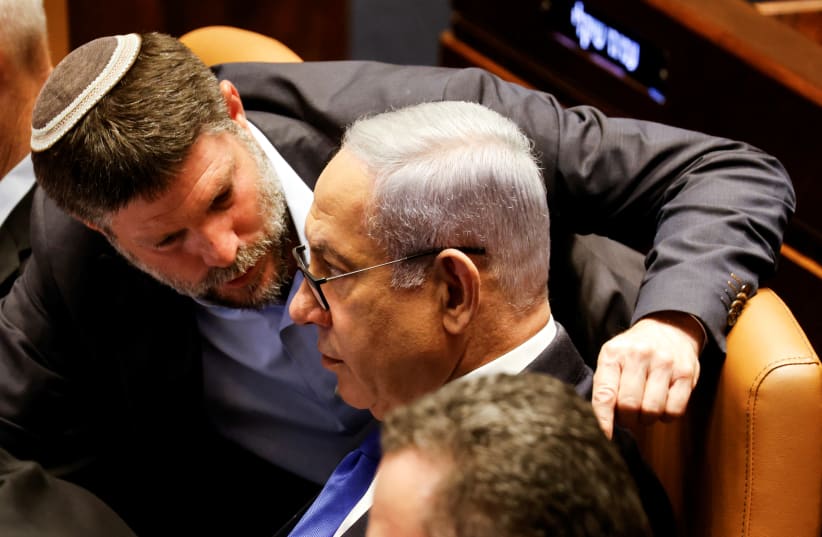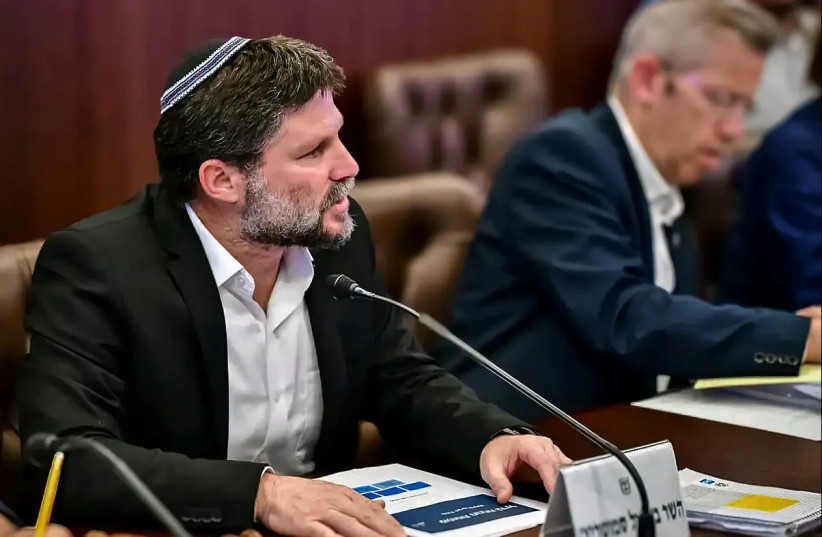Prime Minister Benjamin Netanyahu and Finance Minister Bezalel Smotrich traded accusations on Tuesday and Wednesday over recent price hikes in a large number of products including gasoline, coffee, meat, milk products, and more.
Yediot Ahronot on Tuesday quoted officials from the prime minister's office, who blamed Smotrich for conditioning a meeting with Netanyahu over the price hikes on an invasion of the southern Gazan city of Rafah.
The officials said that the prime minister requested to meet with Smotrich over the latter's "deficient" treatment of the issue, but that the finance minister delayed the meeting as an act of protest over the delay in the Rafah invasion, which Netanyahu has been promising for months.
Smotrich denied the report, but it drew widespread criticism nonetheless, both from politicians from the opposition and from the coalition. Coalition member Knesset Finance Committee chairman MK Moshe Gafni (United Torah Judaism), for example, said on Tuesday that the finance ministry was "doing nothing on the topic of price hikes," and that the government "completely failed on this topic."
Smotrich accuses Netanyahu of failing to confiscate funding for Palestinian Authority
Smotrich fired back on Wednesday. In a letter, he accused the prime minister of failing to fulfill a promise to confiscate NIS 3 billion in funding for the Palestinian Authority, which Smotrich called "terror funds," funding that could have gone towards measures to combat the price hikes.
According to Smotrich, the government was in the midst of long-term moves to lower Israel's high cost of living, such as a bill to equate Israeli import regulations to those in Europe and thus slash unnecessary bureaucracy, which is in the midst of the legislative process. However, to combat high prices in the short term, a budgetary source was necessary.
Smotrich claimed that the renewed 2024 budget, which passed into law in March, took into account a commitment by Netanyahu to pass a bill that would enable seizure of NIS 3 billion of funds earmarked for the PA, but that the prime minister was preventing this for "unknown reasons."
More specifically, the NIS 3 billion was supposed to go to restoration of the Gaza border area, and this would have freed up other funds for subsidies and other moves to lower prices, Smotrich argued.
"It is inconceivable that the concern for the PA and terror funds that it pays to families of terrorists will be more important than the citizens of Israel, who are suffering under the burden of the high cost of living," Smotrich wrote.
The Palestinian Authority is currently suffering from an economic crisis, and faces difficulties paying salaries and is in danger of bankruptcy and collapse. Israel's security system has warned that the economic crisis in the PA may lead to a security escalation in the West Bank as well. However, Smotrich's stated policy is to cause the PA to collapse, and increasing the seizure of funds could hasten this.
Opposition leader MK Yair Lapid criticized the price hikes in a speech in the Knesset plenum on Wednesday.
Lapid noted that the government had formed a ministerial committee to combat high costs of living, but that the committee had not convened since September.
The war was no excuse for the committee's inaction, Lapid argued. "Precisely because of the war, because the war creates prices hikes, [the committee] needs to be convened, and needs to sit and do the one thing that this government is not prepared in any way – to work," Lapid said.

